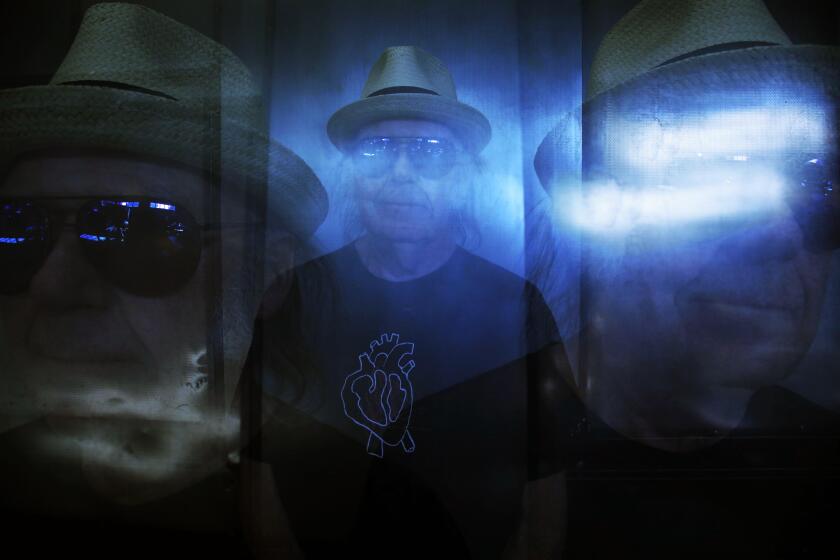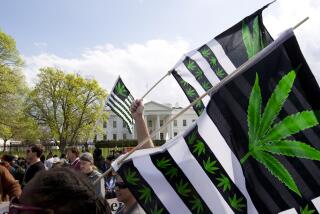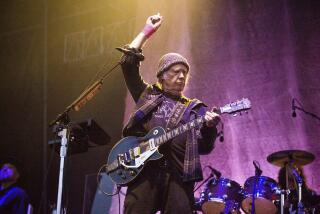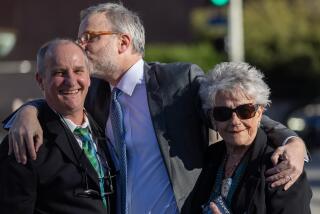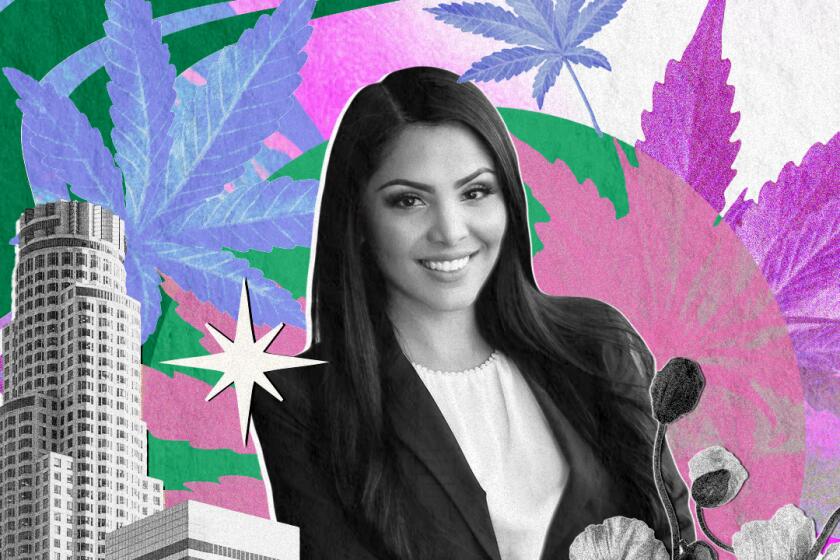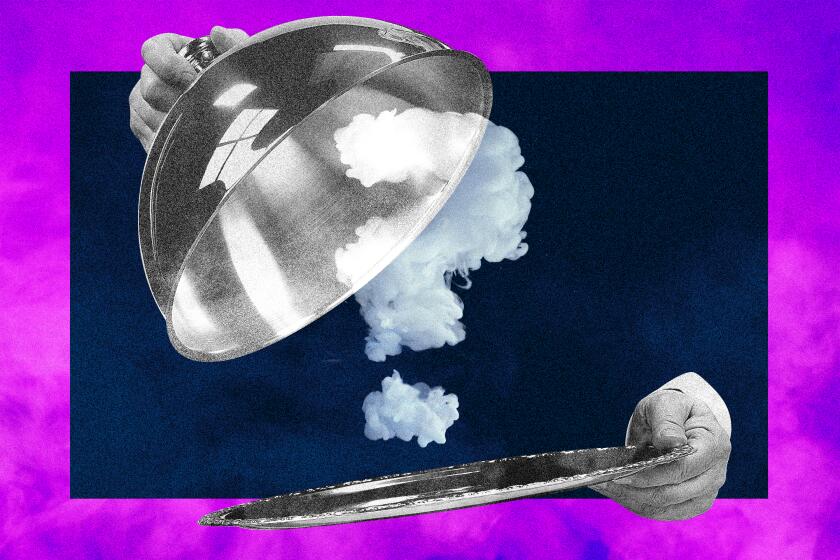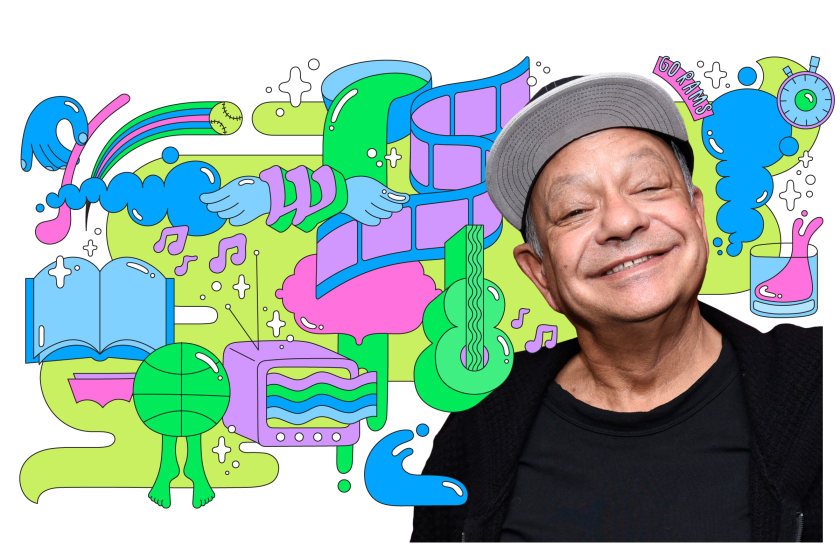Neil Young says his marijuana use has stalled citizenship application
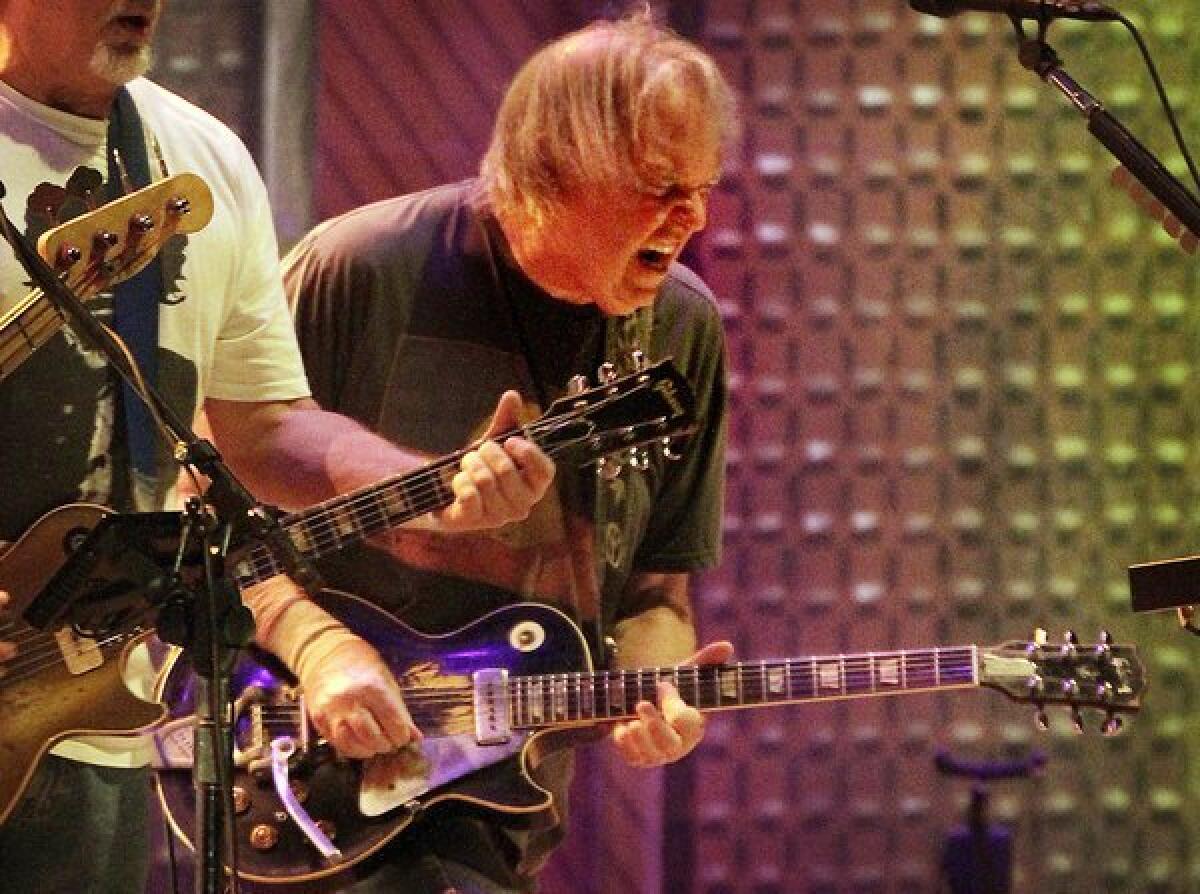
Neil Young’s plan to take his oath of citizenship this month has been delayed because of Trump administration changes to naturalization. Now the Canadian rocker is waiting to find out whether his citizenship will be denied.
During an interview last month with The Times, Young expressed enthusiasm at the prospect of becoming a U.S. citizen at age 74, in time to vote in the 2020 presidential election.
For the record:
3:24 p.m. Nov. 11, 2019A photo caption with an earlier edition of this post identified the federal agency overseeing citizenship as the U.S. Customs and Immigration Service. That agency is U.S. Citizenship and Immigration Services.
“I passed all the tests. I got my appointment and if all goes according to plan… I’ll be taking on oath of citizenship here on Nov. 21,” he said.
On Friday, however, Young posted on his website that “I was asked many questions. I answered them truthfully and passed. Recently however, I have been told that I must do another test, due to my use of marijuana and how some people who smoke it have exhibited a problem.”
It’s been a tumultuous few years for Young, from a new marriage to Daryl Hannah to losing loved ones, taking up weed again and convening his old band Crazy Horse.
He cited a change in naturalization enacted in April under then-U.S. Atty. Gen. Jeff Sessions that states that “An applicant who is involved in certain marijuana activities may lack GMC (good moral character) if found to have violated federal law, even if such activity is not unlawful under applicable state or foreign laws.”
Young added, “I sincerely hope I have exhibited good moral character and will be able to vote my conscience on Donald J. Trump and his fellow American candidates, (as-yet unnamed).”
Asked what spurred him to seek citizenship now, after residing primarily in the U.S. for more than 50 years after moving to Los Angeles in the mid-1960s when he co-founded Buffalo Springfield, Young told The Times last month: “We’ve got a climate emergency and governments are not acting. Democracy is based on [the principle that] you have a vote, you have a voice. But if you don’t practice democracy by voting, you don’t have a voice. That’s the way it works.
“If you have a voice that impacts others who vote — that’s what I’ve been doing [as a musician], but only because that’s all I could do without [the right to vote in the U.S.],” he said. “I’m still a Canadian. There’s nothing that can take that away from me. But I live down here. I pay taxes down here. My beautiful family is down here. They’re all Americans. So I want to I want to register my opinion.”
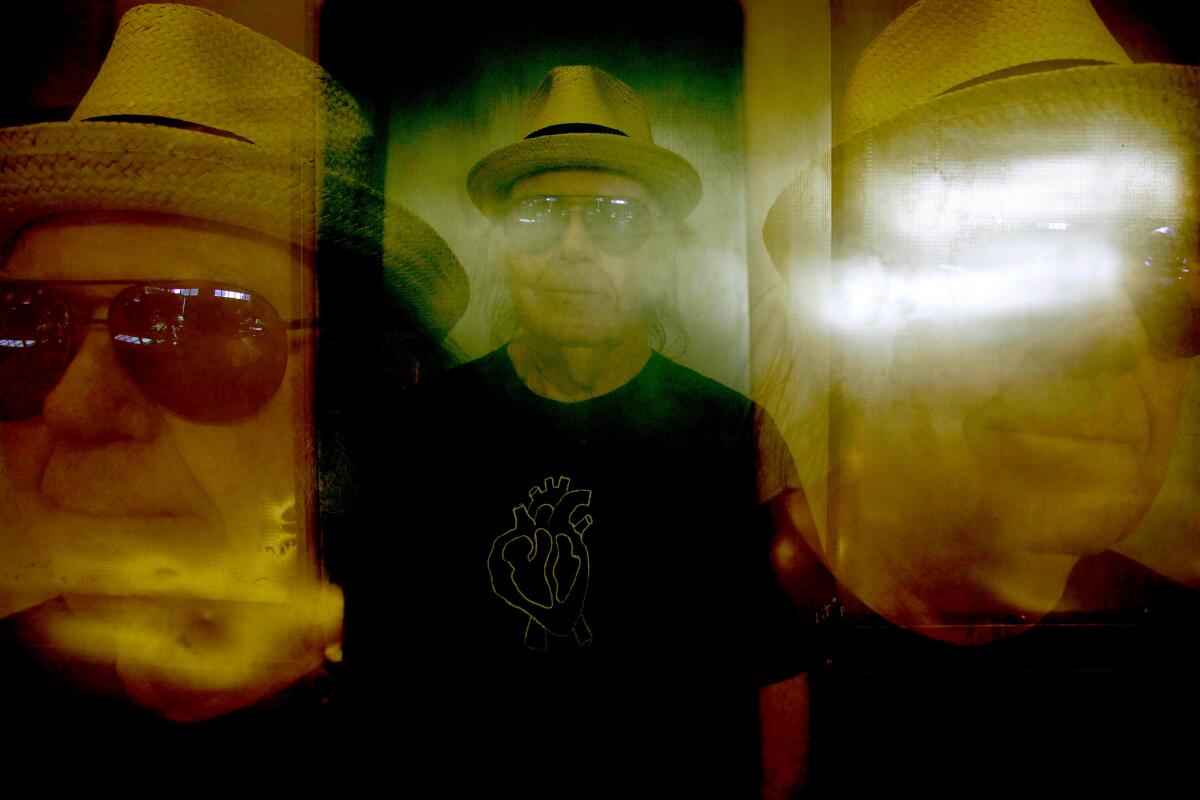
At that time, he said the citizenship test was not a daunting procedure. “They were very easy questions,” he said. “Not a big deal.”
He didn’t identify any presidential candidates he favored, saying only, “Vote with me. No matter which way you vote, make sure you vote.”
He did, however, say he thinks President Trump is afforded too much coverage for his every move and tweet.
“With everybody talking about him, the press following him [and reporting on] everything he does all the time like it meant something — if you go back through everything [Trump has said], all you have to say is, ‘No, it’s a very bad time, all the negative things are happening.’ You don’t need to cover it anymore.”
Young met with Trump long before he became a political candidate, inviting his support for Young’s short-lived Pono music download store and high-resolution audio player as an alternative to Apple’s iTunes and the iPod, all of which fell by the wayside when music streaming supplanted downloads.
The rocker and his representatives sent cease and desist letters to Trump’s campaign demanding they stop playing Young’s 1989 song “Rockin’ in the Free World” at Trump political rallies after the New York businessman entered the presidential race. But Young conceded there’s little legal remedy available for musicians if politicians refuse to heed their requests.
More to Read
The biggest entertainment stories
Get our big stories about Hollywood, film, television, music, arts, culture and more right in your inbox as soon as they publish.
You may occasionally receive promotional content from the Los Angeles Times.
